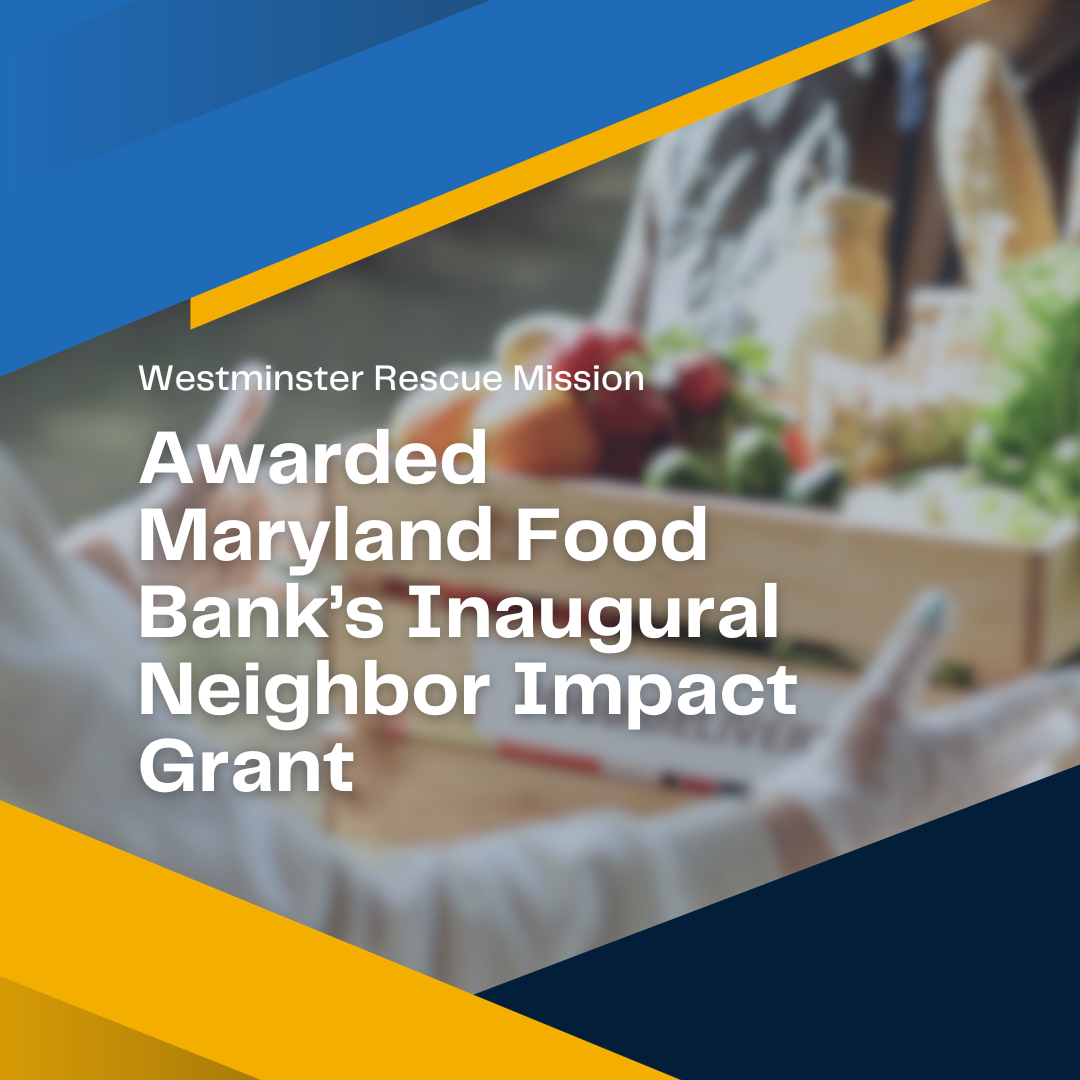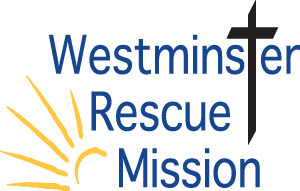
(Maryland Food Bank Press Release – shared by Westminster Rescue Mission)
**Maryland Food Bank Hunger Brief**
Maryland Food Bank Awards Inaugural Neighbor Impact Grants
New grant program aims to support a broad range of strategies and solutions that address food insecurity and its systemic causes
BALTIMORE – In an effort to support promising practices and innovative approaches that have the potential to help more Marylanders become food secure and thrive, the Maryland Food Bank (MFB) is proud to announce roughly $1.05 million in awards over two years to six dedicated organizations through the food bank’s new Neighbor Impact Grants, the latest addition to MFB’s grant making initiative.
“We know we can’t end hunger alone, which is why we’re investing in local organizations that are already doing game-changing work,” MFB Executive Vice President & Chief Strategy Officer Meg Kimmel explained. “We’re thrilled to join with and support these partners that are exploring breakthrough approaches to solving difficult, long-standing problems.”
This fall, the organizations below will receive inaugural Neighbor Impact Grants to fund the following projects aimed at delivering innovative responses that can improve outcomes for Marylanders in need:
- Black Church Food Security Network: The Black Church Food Security Network will lead asset-based community development projects to teach Black churches how to build, tend, and harvest urban farms on church grounds to share food with those in need in their community, elevating churches that have space for farming to true providers of community food sovereignty and resilience.
- Black Yield Institute, Inc.: To minimize transportation costs and dependency on supply chains while redressing systemic and inequitable access to land and food resources for communities of color, the Black Yield Institute, Inc. will conduct urban farming in West Baltimore with a community-produced, community-sustained, and community-oriented urban farm that will provide food for hungry neighbors grown in the communities they serve.
- City of Refuge Baltimore: Located in a food desert with poor public transit, City of Refuge Baltimore will partner with NAPA Auto Parts to launch an automotive technician workforce development program that provides heavily subsidized car repairs for low-income residents in the neighborhood. Students will be able to practice their skills, help neighbors retain transportation, gain an automotive technician certification, and receive assistance finding jobs in a high-demand industry.
- Johns Hopkins Children’s Center: The Hopkins Community Connection program (HCC) will use community health workers to provide food, transportation, and case management support to families who expressed food insecurity via phone outreach and home visits, leaving families who come in contact with Baltimore’s central hospital in a better position, enrolled in appropriate benefits, and supported by wraparound services.
- The United Way of Central Maryland, Inc.: The United for Child Care program will conduct advocacy, education, and public awareness campaigns to address the childcare shortage in Maryland and the poor pay and working conditions of childcare workers leading to the shortage.
- Westminster Rescue Mission: The Westminster Rescue Mission aims to build a collective impact network of partners to transform the food security and human services landscape in Carroll County, better organizing local services and focusing their collective clout.
“While distributing food more efficiently and equitably will remain vital to MFB’s mission, we also know that it takes more than food to end hunger,” Kimmel said. “Food insecurity is a complex, multi-layered socioeconomic problem, with no quick and easy fix. By expanding our grant making efforts, we’ll be able to broaden the community-based solutions that MFB supports, leverages, and ultimately, brings to scale.”
Neighbor Impact Grants are the final piece of MFB’s three-pronged approach to grant making, which began in 2019 as part of the food bank’s 40th Anniversary celebration. That year, MFB launched its Food First Capacity Grants to fund costs associated with distributing more food and broadening the types of food MFB Network Partners could safely distribute. But to really move its strategies forward, the food bank introduced MFB-directed Hunger Hotspot Grants in the fall of 2022 as a way to increase food distribution through start-up partner organizations in targeted geographic areas statewide where neighbors lack access to sufficient food resources.
“In the last fiscal year, we awarded $1.1 million to 105 partners through various grant funding opportunities. This year, we plan to dedicate $2 million to this effort, with expectations that this expanded approach will allow MFB to invest in community-based initiatives implemented by diverse stakeholders inside and outside of our existing network,” Kimmel added.
About the Maryland Food Bank
The Maryland Food Bank is a nonprofit hunger-relief organization dedicated to feeding people, strengthening communities, and ending hunger for more Marylanders by partnering with local organizations from the western mountains to the Eastern Shore. The food bank’s statewide network of food assistance brings enough resources together to provide more than 111,000 meals every day (over 40 million meals annually) to hungry children, seniors, veterans, and hard-working families, meeting the immediate needs of hungry Marylanders while simultaneously working to create pathways out of hunger. To learn more about the Maryland Food Bank, visit www.mdfoodbank.org.
Press Release PDF Version & Contact Information for the Maryland Food Bank: 10-18-23 MFB Announces Inaugural Neighbor Impact Grants.docx
